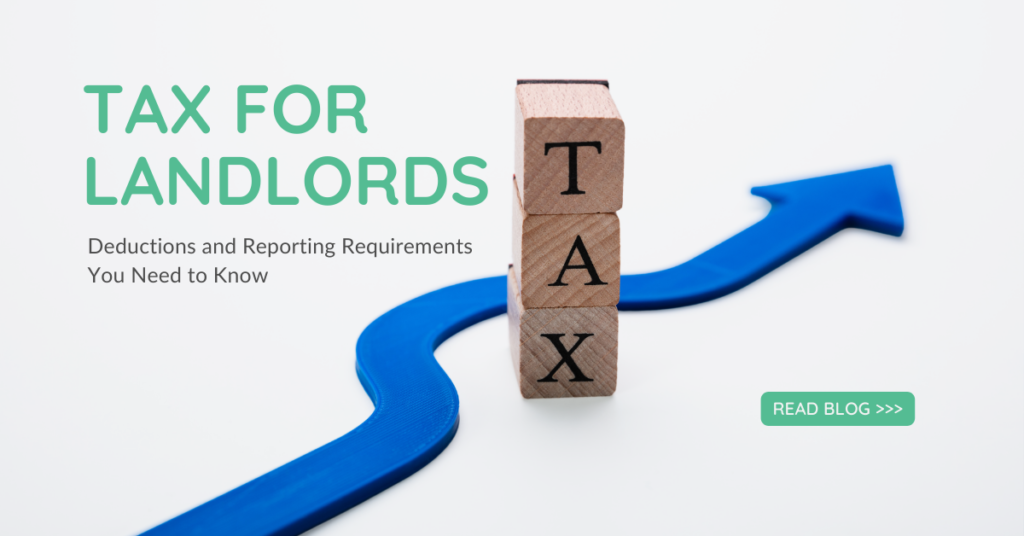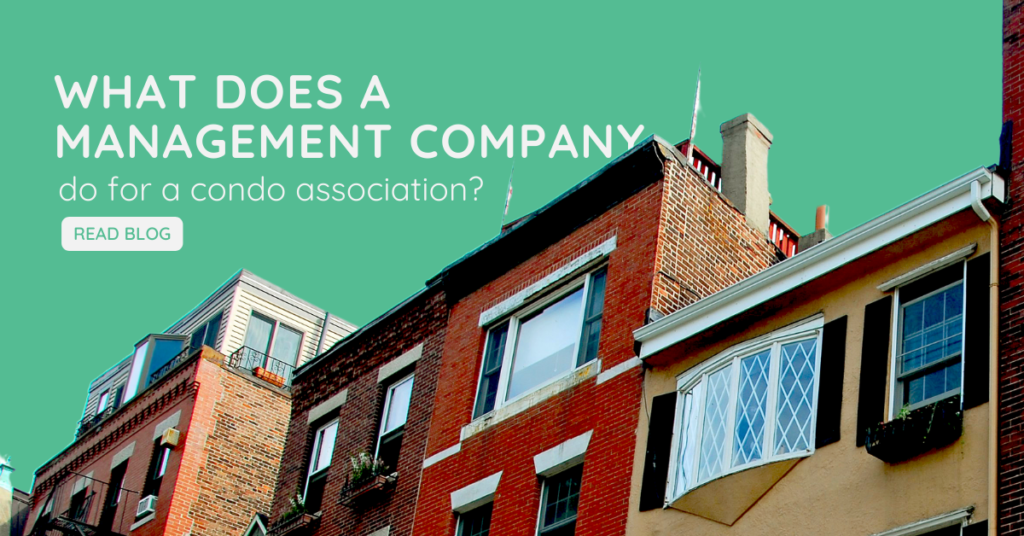How to Choose the Right Property Management Company
Reading Time: 10 minutesOwning investment properties and rental real estate can be an excellent way to generate passive income and build long-term wealth through real estate. However, effectively managing these properties takes considerable time, effort, and expertise. That’s why partnering with a reliable property management company is so valuable for property owners. This guide will walk through key…

Owning investment properties and rental real estate can be an excellent way to generate passive income and build long-term wealth through real estate. However, effectively managing these properties takes considerable time, effort, and expertise. That’s why partnering with a reliable property management company is so valuable for property owners.
This guide will walk through key factors to evaluate when choosing the right property management company. Taking the time to make the right decision upfront pays dividends through a smoother and more profitable rental property ownership experience.
Table of Contents
Hiring The Right Property Management Company
A professional property management company handles all aspects of overseeing your rental properties, acting as your agent and representative. This frees up your time to focus on other priorities while providing peace of mind that your properties are in good hands. Beyond just collecting rent and handling maintenance, a good property manager will maximize returns, minimize vacancies, handle legal compliance, and provide comprehensive reporting.
With the right property management partner, rental property owners gain the benefits of professional expertise, reduced stress, and optimal financial performance. However, entrusting your properties to another party is a big decision. Property owners must do their due diligence to select a management company that best matches their needs and provides exemplary service.
The tips outlined below aim to empower property owners to find the ideal management partner.
Assess Your Property Management Needs

The first step in choosing the right property management company is to have a clear understanding of your specific property management needs. This involves assessing the key details and requirements of the property or properties you aim to manage.
Some key factors to consider include:
- Property type – Is it a single-family home, apartment building, commercial building, HOA community? Different property types have different management needs.
- Number of units – A single condo unit has simpler needs than a 50-unit apartment complex. The number of units greatly impacts the scale of management.
- Features and amenities – Does the property have a pool, fitness center, landscaping, or other amenities that require maintenance? What are the unique features of the property?
- Location – A downtown highrise or a rural vacation rental will need location-specific expertise. Proximity to the property manager is also a consideration.
- Current condition – Does the property require any major repairs, renovations, or maintenance to prepare it for occupants? This impacts the scope of the initial work required.
- Rental vs privately owned – Rental properties require tenant screening, leasing, rent collection, etc. Privately owned properties may only require cleaning or general upkeep.
Detailing the property type, size, unique amenities, location, and your intended usage will allow you to determine the appropriate scope of management required and match those needs to the right property management company.
Research Potential Property Management Companies
When searching for a property management company, there are several effective methods for researching potential options. Here are some tips for evaluating companies during your research process:
1. Review Online Listings and Reviews
Online review platforms like Google, Yelp, and the Better Business Bureau can provide insight into a property management company’s reputation. Pay attention to the number of reviews, the company’s responses, and the overall tone of customer feedback. Look for consistent satisfaction across many reviews over an extended period.
2. Seek Referrals from Local Real Estate Networks
Speaking with real estate agents, investors, or landlord associations in your area can reveal management companies with a strong local reputation. Ask for referrals based on positive experiences with communication, responsiveness, and fair pricing. Real estate networks often have first-hand insight into a company’s performance.
3. Assess Experience and Longevity
An established property management company that has been operating for many years has likely built operational experience managing various types of properties. Newer companies can still deliver quality service, but evaluate their team’s background managing properties similar to yours. Look for proven expertise.
4. Verify Licensing
Make sure any property management company you are considering has the proper licensing to operate legally in your state and locality. Licensing shows they are following regulations and have cleared required compliance checks.
Evaluate Services Offered
One of the most important steps in choosing a property management company is carefully evaluating the services they offer. The services a property management company provides can greatly impact the performance of your rental property and your experience as an owner. Be sure to assess the following key services:
Comprehensive Property Marketing
A good property management company will have a plan in place to market your rental property across a variety of platforms. This includes listing the property on major rental sites, utilizing social media, and tapping into local real estate agent networks. They should use professional photography and have copywriting expertise to showcase your property in the best light.
Tenant Screening and Selection
Thorough tenant screening is crucial for finding responsible long-term renters. The company should check tenant backgrounds, employment, income, credit history, and references. Make sure they have a consistent screening process and don’t take shortcuts that could lead to problem tenants.
Property Maintenance and Repairs
Find out how the company handles maintenance requests, repairs, preventative maintenance, and unit turnover. Do they have qualified vendors and contractors on call? What is the process for handling emergencies? Make sure regular maintenance work is budgeted for.
Legal Compliance and Risk Management
A property management company should ensure your property remains in compliance with all federal, state, and local laws regarding safety, fair housing, discrimination, leases, security deposits, evictions, and more. This protects you from legal risks as an owner. Request their procedures for mitigating risks.
Review Communication and Technology

When researching property management companies, be sure to assess how they communicate with property owners and utilize technology in their business. Good communication and use of technology are signs of a professional, responsive company.
- Communication Methods. Ask about the various ways the company communicates important updates, documents, and issues. Do they rely solely on phone calls and emails or do they have an online owner portal? Are there multiple team members assigned to your property to ensure fast responses?
- Online Portals. Many property managers provide online portals where owners can access statements, reports, maintenance requests, and more. A user-friendly, comprehensive owner portal enables you to stay updated on your property anytime.
- Responsiveness. Pay attention to how quickly companies respond to inquiries during the research process. This gives insight into their overall responsiveness once hired. Slow or inconsistent communication is a red flag.
- Use of Software. Does the company use software to automate and streamline processes like collecting rent, tracking maintenance, screening applicants, and managing accounts? Software integration leads to higher efficiency.
- Digital Payments. Find out how the company handles collecting and dispersing rental payments and owner distributions. Direct deposit and digital payment processing make financial management seamless.
A property manager’s communication practices and use of technology demonstrate their reliability, transparency, and efficiency. Prioritize companies that provide robust online owner portals, utilize software tools, and maintain responsive communication.
Understand Fee Structures
When hiring a property management company, it’s crucial to have a clear understanding of their fee structure and what costs will be involved. There are several common types of fees to be aware of:
- Management Fees – This is an ongoing monthly fee paid to the property management company, usually a percentage of the monthly rent. Typical fees range from 5-15% of rent collected. This covers their overall services.
- Leasing Fees – Charged for finding new tenants and executing new leases. Common leasing fees equal 1 month’s rent.
- Maintenance & Repair Fees – The property manager may charge oversight fees for arranging maintenance, repairs, or capital improvements, such as 10% of the total maintenance cost.
- Tenant Screening Fees – Screening tenant applicants involves background and credit checks. This fee is typically $50-100 per applicant.
- Eviction Fees – If evicting a non-paying tenant becomes necessary, additional legal fees apply. Eviction fees range from $200-500 on average.
- Advertising Costs – Managers may charge back the cost of advertising and marketing the property for leasing. This aids them in finding qualified tenants.
- Miscellaneous Fees – Other potential fees depend on additional services, such as handling property tax and insurance payments, overseeing association dues, and arranging utilities.
It’s important to thoroughly understand what is included in the base monthly management fee versus fees charged additionally on an as-needed basis. Ensure the full fee structure is transparent before signing a management contract.
Conduct Interviews

Interviewing potential property management companies is a crucial step in making your decision. Prepare a list of questions to ask during your interviews to fully evaluate each company and property manager.
Some important topics to cover include:
Experience
Ask about their overall experience managing properties similar to yours. How long have they been in business? How many properties do they currently manage? This will help you gauge their level of expertise.
Tenant Management
Inquire about their process for attracting tenants, screening applicants, collecting rent, addressing late payments, and handling evictions if necessary. Thorough tenant management is key for maximizing occupancy and cash flow.
Maintenance
Find out their procedures for addressing maintenance requests, coordinating repairs, inspections, and preventative maintenance. Do they have qualified technicians and contractors available around the clock? Fast response times for maintenance issues are vital.
Communication
Discuss their communication methods and frequency. How often will they provide updates to you on your property’s status? Do they offer online owner portals? Will you have access to your property manager by phone, email, or text? Open communication is essential.
Fees
Review their fee structure in detail during your interview. Apart from management fees, are there additional charges for tasks like maintenance coordination, legal proceedings, etc? Full transparency on fees is important.
Responsiveness
Pay attention to their accessibility and responsiveness during your interactions. How quickly do they return calls and emails? Their communication skills during the interview may reflect the ongoing partnership.
Ask plenty of questions and don’t feel rushed. You want to ensure excellent responsiveness and clear communication from potential property managers before signing any contract. Conducting detailed interviews is key to finding the right fit.
Check References
When you have narrowed down your options to one or two potential property management companies, it is crucial to check their references thoroughly. Speaking to current and past clients will provide valuable insights into the company’s reputation, performance, and service quality.
Start by asking each company to provide a list of 2-3 client references. Ideally, these should include both current clients and those they have worked with in the past. Make sure to request contact information so you can reach out directly.
When speaking to references, have a list of questions prepared in advance. Inquire about their overall satisfaction working with the company. Ask how responsive the company is in addressing issues or concerns. Verify they deliver on promised services consistently.
Get specific examples of challenges faced and how the property management company responded. Did they resolve maintenance problems promptly? Were they able to keep rental properties filled with tenants? Did they handle legal or financial issues competently? What systems and processes did they have in place?
It is also important to assess communication skills. Did the property manager provide regular updates and reports? Were they accessible via phone, email, or online portals? Did they listen and understand the property owner’s needs? Effective two-way communication is vital for a positive relationship.
Pay attention to any hesitations, doubts, or criticisms mentioned by references. Look out for red flags around unethical business practices, hidden fees, or frequent turnover of property managers. If multiple references express the same concerns, it is wise to steer clear of that company.
Thoroughly checking references will help verify if a property management company measures up to claims made during the interview process. The insights gained by speaking to real clients with first-hand experience can give you confidence you are choosing the right partner for your rental property needs.
Negotiate Contract Terms

When you’ve narrowed down your choice to one or two potential property management companies, it’s time to negotiate the specifics of the contract. This is your opportunity to ensure the terms, fees, and duration align with your needs and goals.
Discuss and Agree on Fees
There are several types of fees to negotiate:
- Management fees – Typically a percentage of collected rent, around 8-12%
- Leasing fees – For finding and screening new tenants
- Maintenance markups – Added on top of actual maintenance costs
- Other fees – Such as insurance, tax preparation, eviction costs
Be sure you understand how each company calculates its fees and what specific services are included. Compare fee structures across companies to find the best value. Negotiate to get fees lowered or services added if needed. Agree on a fee structure that provides a fair value.
Determine the Contract Duration
Typical contracts range from 6 months to 1 year, with 30-60 days notice to terminate. Consider your short and long-term goals when agreeing on duration. A shorter contract offers more flexibility if you want to re-evaluate frequently. But a longer contract, around 1 year, promotes greater stability. Ensure you can terminate early if needed, with reasonable notice periods.
Build in Flexibility for Changing Needs
Your property management needs may evolve. Negotiate contract terms that allow flexibility. For example, request the option to remove certain add-on services later or adjust fees if you add or remove properties. Build an annual review clause to reassess pricing and services. Aim for a contract that adapts as your rental business grows and changes.
Communicating your priorities will allow you to negotiate a property management contract that suits your current and future needs. Maintaining open and honest dialog with potential companies is key to aligning on fair terms and fees.
Make a Decision Between Property Management Companies
After thoroughly researching potential property management companies, evaluating services, checking references, and negotiating contract terms, you’re ready to make a final decision. Here are some tips for the final selection process:
Review Your Findings
- Look back at your notes and summarize your impressions of each company. Compare factors like services offered, communication methods, fees, and responsiveness.
- Make a table or spreadsheet to compare each company across important criteria. This can help identify strengths and weaknesses.
- Determine which companies best fit your property management needs and budget. Cross off any options that don’t meet your requirements.
Trust Your Instincts
- Even after gathering lots of data, your gut feeling still matters. Which company do you feel most comfortable with?
- Consider rapport with staff, transparency of operations, and overall trustworthiness. Go with the company that instills confidence they will care for your property as their own.
Sign the Contract
- Once you’ve selected the right property management company for your needs, it’s time to make it official. Thoroughly review and negotiate the contract terms.
- Make sure the contract covers the agreed-upon services, fees, and communication methods. Clarify any uncertainties before signing.
- Finalize and sign the contract to kick off the partnership! You can feel assured handing your property over to a management company you thoroughly vetted.
- Schedule a walkthrough of your property with your new property manager to align on conditions, maintenance, and expectations.
Conclusion
Following this thoughtful process will help you identify and confidently select the right property management company for your rental property. Trust your research and instincts to make the best decision for your needs. The investment will pay dividends through reliable care and management of your property.
Ready to make the right choice in property management? Contact Green Ocean Property Management today and choose us as the right property management company for you. Let’s ensure your property is in expert hands, maximizing its potential and your peace of mind.
Don’t delay—reach out now and make the smart decision with Green Ocean Property Management!
Tax for Landlords: Deductions and Reporting Requirements You Need to Know
Reading Time: 5 minutesOwning rental property can be a great source of income, but come tax time, it can also add complexity. Understanding how to report your rental income and the deductions you can claim is essential for minimizing your tax liability. This guide will equip you with the knowledge to navigate tax season as a landlord. …
Rental Property Riches: Building Passive Income
Reading Time: 6 minutesHave you been dreaming of a life where your hard-earned cash works for you, allowing you to achieve true financial freedom? If so, it’s time to unlock the power of passive income through rental properties. Imagine a world where your monthly expenses are covered by the steady stream of rental income, leaving you with the…
What Does A Management Company Do for A Condo Association?
Reading Time: 3 minutesFor condo owners, navigating the complexities of shared ownership can feel daunting. From maintaining common areas to enforcing rules, ensuring financial health, and handling legal matters, the responsibilities of a condo association can be substantial. This is where professional management companies step in, acting as the pillars that support a thriving condo community. The…







